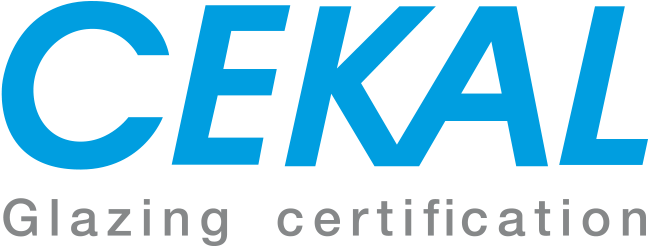Insulating glazing
1. Certification procedure
In principle, the procedure includes 2 “qualification” visits to the site by an inspector and at least 1 qualification test per type of sealant (climatic ageing 168 cycles hot-cold-humidity-UV cycles as per the Cekal referential).Once the certificate has been received, the follow-up process involves 2 visits per year with 1 test per sealant type per year (climatic ageing hot-cold-humidity). Sealant types include polysulfide/polyurethane, monocomponent silicone, bicomponent silicone, hot-melt.
Certain types of glazing or assembly processes may require specific tests.
2. Duration of the certification procedure
The duration of the procedure depends on the time required to send the samples taken during the visit, the time required to perform the tests (approximately 6 months), and the dates of the meetings of the Certification Committee (or the emergency commission).Accelerated procedures can help to obtain temporary attribution with intermediate test results . These procedures are only accessible if the constituents used are well-known by CEKAL..
3. Technical certification rules (www.cekal.com, referential, technical requirements, insulating glazing, "find out more" button, chapter 10)
We recommend that you read Chapter 10 of the technical rules, concerning internal tests and inspections (in the production centre). These tests and inspections comply with standard EN1279-6, with a few specific points in addition. Since this chapter covers several types of assembly processes, it is only partially applicable to your production centre (depending on your type of assembly process).Note that the 1st visit allows you to ask questions. All of the relevant documents from your production site must include at least a short translation into English or French. The language of the visits is also French and/or English.
4. Insurance
An insurance certificate in accordance with article 1792-4 of the French Civil Code must be sent to us prior to issue of the certification. It is not necessary immediately, but we recommend that you inform yourselves several months ahead of time.
5. How to start the procedure?
You must first send us :- the certification contract, including a commitment to comply with the certification rules. It is not necessary to choose your status immediately.
- the request form
Once these documents have been received, an inspector will be appointed, and you may contact him to set the date for the qualification visit, during which the samples will be taken for the tests.
6. Cost
Cekal calls upon measurement and verification bodies (MVB) to carry out the inspections and tests. The inspection and visit costs are to be paid to this body. The membership fees are to be paid to Cekal.Initial certification including:
- Measurement and verification body: 2 visits (+ travel expenses if applicable*) + at least 1 test per sealant type** + administrative costs
- CEKAL: IG entry rights (1600 to 2080€).
Annual cost including:
- Measurement and verification body: 2 visits (+ travel expenses if applicable*) + 1 test per sealant type per year** + "technical assistance***"
- CEKAL: fixed annual fee (1600 to 2080 € per year) and variable IG fee based on the total insulating glazing production of the site intended for construction (16 € per 1000 m2 per year****)
(*) not applicable if the production site is in the same "geographic aera" as the concerned MVB (**) for up to 3 types of spacers
(***) applicable to MIA and NMA statuses
(**** ) not applicable the 1st year, limited to 500,000m2 the following years
The Measurement and Verification Body will send you a quote (in compliance with the attached price list). The cost essentially varies according to the location of your site (time spent and travel costs), the number of tests to be performed in the laboratory and the choice of an accelerated process or not. An accelerated process is riskier, since the issuance of the certification is only temporary and subject to subsequent confirmation on the basis of the final test results.
The certification process officially starts after you have accepted the quote received from the Measurement and Verification Body. This quote must use the codes indicated in the current price list.
